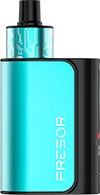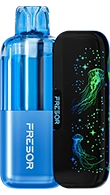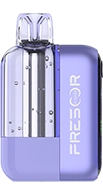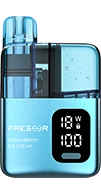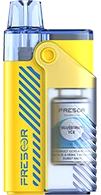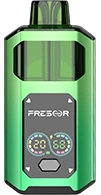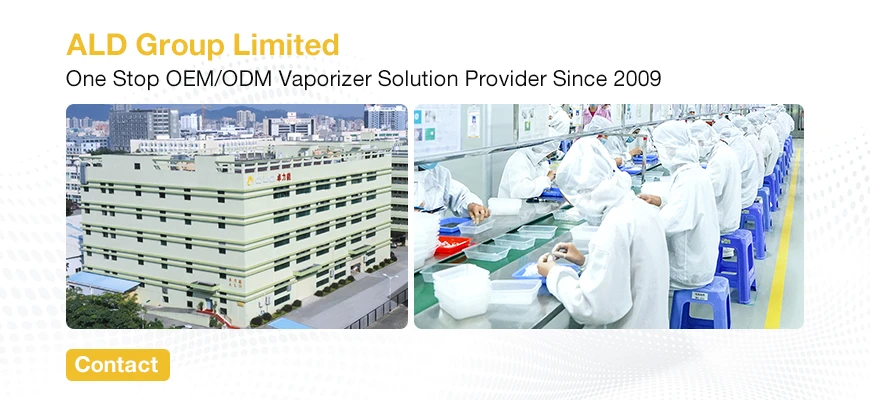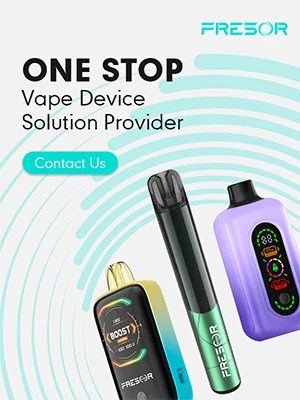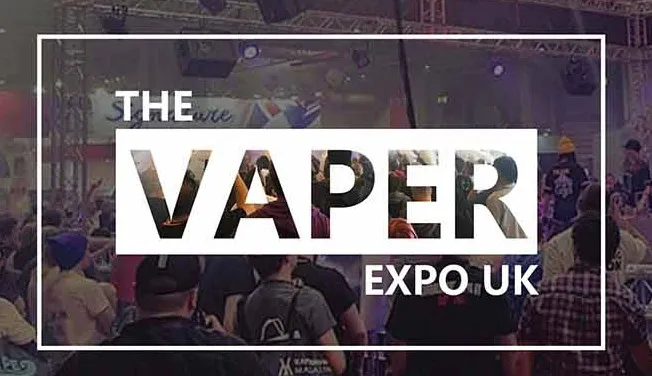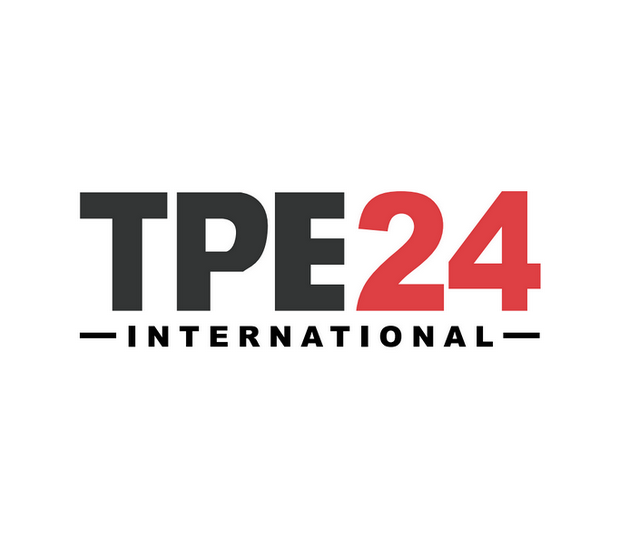E-Cigarette Regulations in Germany, 2023 Update

10 October 2023
In the dynamic world of e-cigarette, keeping your finger on the pulse is essential for businesses, retailers, and distributors in Germany. The year 2023 brings a wave of significant changes, reshaping the landscape in various ways. This article delves into the latest developments shaping the vape and e-cigarette market, from age restrictions to packaging requirements.
Vape and E-Cigarette Regulatory Changes in 2023
The year 2023 marks a turning point in Germany's vape and e-cigarette sector, introducing new regulations that impact how businesses operate and consumers interact with these products. Let's delve into the key areas that have seen noteworthy transformations:
Regulations on Age Limits for Buying and Using Vape Items
Germany is taking a decisive stance to protect its younger generation from the allure of vaping. In alignment with the Tobacco Products Directive (TPD) of the European Union, individuals under the age of 18 are now prohibited from purchasing or using e-cigarettes and related products. This legal update aims to encourage responsible consumption and foster a secure environment for the youth to thrive.

Product Packaging and Labeling Requirements
Recognizing the power of clear communication, Germany reinforces guidelines for packaging and labeling vape products. Manufacturers and retailers are now mandated to include health warnings on the packaging of nicotine-containing e-cigarettes. This step contributes to consumer awareness about potential health risks, enabling informed decision-making.
Nicotine Concentration Limits
Stricter control over nicotine concentration is a central theme in these regulatory changes. The permissible nicotine concentration levels in e-liquids have been standardized, aligning with EU-wide guidelines. This adjustment balances a satisfying user experience and safety, promoting responsible consumption while offering a diverse range of appealing products.
Impact of the Tobacco Products Directive (TPD) Updates
The Tobacco Products Directive, a comprehensive regulatory framework governing tobacco-related products, has shaped Germany's approach to vaping and e-cigarettes. Within this context, e-cigarettes containing nicotine are now classified as tobacco-related products and fall under the umbrella of the Federal Government law on the Implementation of the Tobacco Products Directive and Related Products (2016).
Since 2016, the directive has ensured that e-cigarettes are not sold to individuals under 18, thus limiting access to legal adults. While e-cigarettes are not yet fully aligned with non-smoking protection laws, Germany has taken strides to regulate their usage in specific settings.
It's important to note that although federal laws provide the groundwork, these regulations' interpretation and application can vary across German states. For example, designated areas for vaping and smoking at transportation hubs differ from state to state.
Advertising and Marketing Restrictions
In Germany, advertising and marketing vape products are subject to specific regulations aimed at responsible promotion while safeguarding consumers and public health. To navigate the market effectively, vape businesses and distributors must understand these guidelines.
Here's what you need to know:
Restrictions on Advertising Platforms and Channels
Vape advertising in Germany operates under strict limitations to prevent excessive promotion, especially to non-smokers and youth. Unlike some EU countries that have imposed comprehensive bans on specific advertising platforms, Germany maintains a more nuanced approach.
Billboard and cinema advertising for tobacco products remain permissible, making Germany an outlier within the EU. However, tobacco advertising on television, radio, and print media has been prohibited since 1975 to reduce tobacco consumption. This mixed approach highlights the importance of responsible marketing practices.
Guidelines for Promoting Vape Products
When advertising vape products, businesses must prioritize conveying accurate information about their offerings. Highlighting the reduced harm associated with vaping compared to smoking can be a compelling message. Backing up claims with scientific research can establish credibility and build consumer trust.
While there aren't explicit bans on specific flavors or product varieties, businesses should exercise caution when promoting flavors that might excessively appeal to minors. Instead, focusing on diverse flavors catering to adult preferences demonstrates a more responsible strategy.
Prohibited Marketing Practices
Germany strictly prohibits certain marketing practices to prevent misleading or manipulative advertising. These include:
- False Health Claims: Vape businesses must avoid making exaggerated health claims that lack scientific evidence. Claims such as "vaping cures smoking-related diseases" are not permitted.
- Targeting Minors: Marketing materials must steer clear of appealing to minors. The imagery, language, and overall presentation should be mature and exclusively target adults.
- Misleading Packaging: Packaging must accurately represent the product and avoid misleading consumers about its contents or benefits.
Sales and Distribution Regulations
Navigating the sales and distribution landscape for vape products in Germany requires a deep understanding of licensing, age verification, and online/offline sales regulations. Whether you're a retailer or distributor, compliance with these regulations is paramount:
Licensing and Permits for Vape Businesses
Vape businesses operating in Germany must adhere to the Tobacco Products Directive (TPD) guidelines. This directive categorizes nicotine-containing e-cigarettes as tobacco-related products, subjecting them to specific regulatory frameworks. This means that businesses must ensure they possess the necessary licenses and permits to operate within the bounds of TPD guidelines.
Restrictions on Online and Offline Sales Channels
Both online and offline sales of vape products are permissible in Germany, but they must adhere to precise regulations. Online platforms must incorporate age verification mechanisms to prevent sales to minors. Physical retailers should prioritize customer age verification when selling products in-store.
Age Verification Processes for Online Sales
Online retailers must implement robust age verification processes to prevent the sale of vape products to minors. This could involve requesting government-issued IDs and cross-referencing customer information to confirm legal age. Neglecting age verification regulations can result in serious legal consequences.
By deftly navigating advertising restrictions, following sales and distribution regulations, and prioritizing age verification, vape businesses, retailers, and distributors can ensure compliance and promote public health.
Taxation and Pricing
As the popularity of vape products continues to rise, businesses in this sector must be well-versed in the tax framework that applies to their products. They must also craft pricing strategies that ensure competitiveness in the market.
Taxes Applicable to Vape Products
Vape businesses in Germany must navigate a nuanced taxation system that affects their bottom line. The primary tax applicable to vape products is the value-added tax (VAT), known as "Mehrwertsteuer" in German. The latest update shows that Germany's standard VAT rate stands at 19%. This rate is applied to the final retail price of vape products, including e-liquids, devices, and related accessories.
Moreover, other potential taxes, such as excise duties, might be levied on vape products. However, it's vital to acknowledge that these tax regulations are subject to change, so staying informed about any developments is imperative.
Pricing Considerations for Vape Businesses
Determining the right pricing strategy for vape products necessitates a balanced approach. While setting competitive prices is pivotal for attracting customers, businesses must consider applicable taxes and other operational costs to ensure long-term sustainability.
One effective strategy is value-based pricing, where businesses gauge the perceived value of their products to customers and set prices accordingly. This approach helps convey quality and uniqueness, which can justify a slightly higher price point.
Compliance with Tax Regulations
Compliance with tax regulations is non-negotiable for vape businesses in Germany. Maintaining accurate records is essential for precise reporting of sales and VAT collection. Modern point-of-sale (POS) systems and accounting software can streamline this process, minimizing errors.
Regular audits of financial records are a proactive measure to identify and address discrepancies before they result in compliance issues. Collaborating with tax professionals or consultants with expertise in the tobacco and vaping industry can provide valuable insights and guidance to ensure adherence to all pertinent tax regulations.
Future Trend
The trajectory of vape and e-cigarette regulations in Germany points to significant shifts shortly. Anticipate more stringent controls on how these products are marketed and advertised, mainly to reduce youth exposure. Online sales might face more rigorous age verification requirements to prevent underage purchases.
Furthermore, expect heightened scrutiny on product safety and standards. This could translate into heightened demands for transparency about ingredients, mandatory warning labels on packaging, and potential constraints on specific flavors.
Strategies for Future-Proofing Vape Businesses
To ensure the longevity of vape businesses, a proactive stance is essential. Staying abreast of regulatory updates is of paramount importance. This involves fostering connections with industry groups, staying tuned to official announcements, and engaging in relevant discussions.
Diversification stands as a safeguard against uncertain regulations. Expanding product lines to include alternatives like heat-not-burn devices or nicotine-free options can create a buffer against potential restrictions on specific products.
Innovation holds the key as well. By investing in research and development, businesses can engineer safer and more advanced vape products, positioning themselves favorably to navigate evolving regulations.
Final Talk
In Germany's vape and e-cigarette regulations, success pivots on understanding taxation, devising intelligent pricing strategies and foreseeing future trends. Adhering to tax norms and crafting competitive pricing are cornerstones for sustained growth. As the industry evolves, businesses must demonstrate agility and responsiveness to impending trends, including more stringent marketing rules and heightened safety requisites.
Through embracing diversification and innovation, vape enterprises can confidently traverse regulatory shifts. By proactively complying with regulations, implementing strategic pricing, and cultivating a readiness for change, businesses can thrive and responsibly contribute to public health objectives. This approach secures their position in Germany's ever-evolving market and ignites a promising future.

